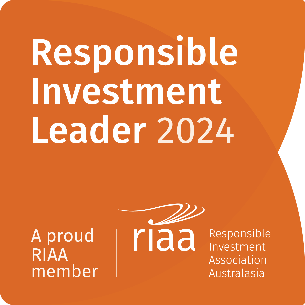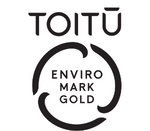Our Approach to Responsible Investment
Devon defines Responsible Investment as a strategy which aims to add value and improve risk management through the incorporation of Environmental, Social and Governance (ESG) factors into our financial analysis and investment decision-making.
We believe that companies that have strong Responsible Investing policies in place are more likely to act in the best interest of all their stakeholders, and are better positioned to deal with any challenges that arise. This will, in the long term, result in improved investment returns
Devon applies two Responsible Investing strategies when managing client’s funds: ESG integration and active ownership. ESG is an explicit part of our process. Following the detailed analysis of a business, we rate the potential investment on an ESG score. We rank each business on the following components - Environmental, Social & Governance. Our source data for the ranking includes our own views, media reports, regulatory reviews, government reports, annual reports and third party ESG research vendors – Devon’s provider is currently MSCI. For any businesses that we hold ESG concerns over, we evaluate whether to hold the position and engage with the company or to exit the position. We engage frequently with the companies that we own and those that we are analysing.
Devon is a signatory to the Principles for Responsible Investment. We have adopted these Principles (detailed below) and they have been incorporated into the Devon Compliance Guide.
Devon’s investment philosophies are in alignment with the objectives of the Paris Agreement, UN sustainable development goals and OECD guidelines for multinational enterprises, including guidance on responsible business conduct for institutional investors.
The Principles for Responsible Investment
As institutional investors, we have a duty to act in the best long-term interests of our beneficiaries. In this fiduciary role, we believe that environmental, social, and corporate governance (ESG) issues can affect the performance of investment portfolios (to varying degrees across companies, sectors, regions, asset classes and through time). We also recognize that applying these Principles may better align investors with broader objectives of society. Therefore, where consistent with our fiduciary responsibilities, we commit to the following:
1) We will incorporate ESG issues into our investment analysis and decision-making processes.
2) We will be active owners and incorporate ESG issues into our ownership policies and practices.
3) We will seek appropriate disclosure on ESG issues by the entities in which we invest.
4) We will promote acceptance and implementation of the Principles within the investment industry.
5) We will work together to enhance our effectiveness in implementing the Principles.
6) We will report on our activities and progress towards implementing the Principles.
Guidelines on Environmental Factors
Devon incorporates Environmental factors into our decision making in order to understand all relevant long-term risks associated with the companies that we own and are analyzing. The following Environmental factors broadly represent what will be considered:
- Climate change – e.g. carbon emissions, climate change
- Natural capital – e.g. water stress, biodiversity and land use, raw material sourcing
- Pollution and waste – e.g. toxic emissions and waste, packaging material and waste, electronic waste
- Environmental opportunities – e.g. clean technology, green building, renewable energy
Guidelines on Social Factors
Devon incorporates Social factors into our decision making in order to understand all relevant long-term risks associated with the companies that we own and are analysing. The following Social factors broadly represent what will be considered:
- Human capital –e.g. labour management, health and safety, human rights violations, supply chain and labor standards
- Community relations
- Animal welfare
- Product liability – e.g. product safety and quality, chemical safety, privacy and data security, health and demographic risk
- Controversial sourcing
- Diversity
Guidelines on Governance Factors
Devon incorporates Governance factors into our decision making in order to understand all relevant long-term risks associated with the companies that we own and are analysing. The following Governance factors broadly represent what will be considered:
- Corporate governance – e.g.: board, pay, ownership, accounting
- Controversial investments
- Corporate behavior – e.g. business ethics, anti-competitive practices, corruption and instability, tax transparency
Engagement Policy
Direct engagement with companies and their stakeholders is an important part of Devon’s investment process, and a key driver of our approach to Responsible Investment.
Engagement is typically with the CEO, CFO and other senior management and may take the form of face-to-face meetings, phone conversations or written communication. This engagement provides us with insights into the quality of a company’s management, strategy, market environment, operations, governance structure and their approach to ESG issues. We also engage with the Board of Directors to inform them of our view on a topic and to understand how a Board may be addressing a particular issue. If a concern is not being addressed to our satisfaction with management we will look at the option of escalating it to the Board.
We will collaborate with other fund managers through the New Zealand Corporate Governance Forum, of which we are a founding member, where we believe a collaborative approach will be in the best interests of our clients and achieve the greatest result. Devon is also an active member of Climate Action 100+ and the RIAA Human Rights Working Group.
Voting Policy
We are advocates for strong corporate governance structures, shareholder rights, and transparency. We vote all proxies on behalf of clients, unless the client has a preference to vote the proxies themselves. The objective in voting is to support proposals and director nominees that maximize the value of a portfolio’s investments over the long term. Factors considered include conflicts of interest, transparency, environmental impacts, social and governance issues and extraordinary meetings.
Each proposal must be evaluated on its merits, based on the particular facts and circumstances as presented. Our practice seeks to ensure that proxy voting decisions are suitable for individual portfolios. For most proxy proposals, the evaluation will result in the same position being taken across all of the portfolios and the portfolios together typically vote as a block.
Screening / Exclusions Policy
Devon does not apply a standard Screening or Exclusions policy across all of our portfolios although specific mandates require certain company and sector eliminations to occur. Devon engage with MCSI and other third party providers to determine company and sector definitions.





